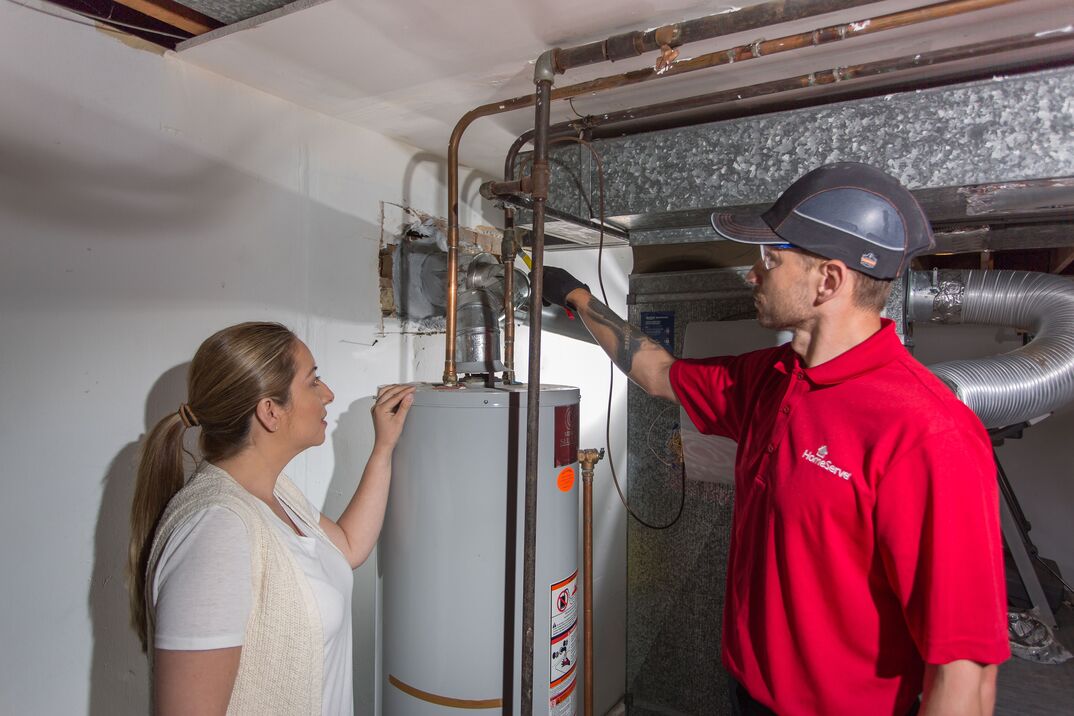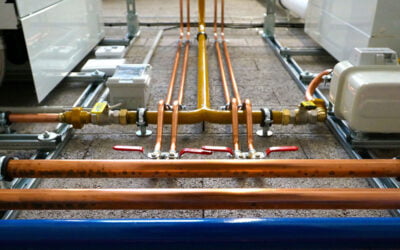Your water heater is one of the most important appliances in your home. It provides hot water for cooking, cleaning, and bathing. When it stops working properly, it can be a major inconvenience. That’s why it’s important to know how to choose the right water heater, how to install it, and how to maintain it. In this blog post, we’ll cover all of those topics and more. We’ll also answer some frequently asked questions about water heaters. By the end of this post, you should have a good understanding of how to keep your water heater running smoothly.
Why You Need A Water Heater
If you’re like most people, you probably don’t think too much about your water heater. After all, it just heats the water up so that you can take a hot shower or bath. But over time, water heaters will start to break down. And if they don’t get fixed quickly, they can become very expensive to repair or replace.
That’s why it’s important to have a professional inspect your water heater and help you determine if it needs repairs or replacement. They can also help you choose the best type of water heater for your home – whether that’s an electric model, a gas model, or a propane model. So don’t wait – call on professionals today!
If your water heater is showing any of the following signs, it probably needs to be replaced:
- Your water heater is leaking water all over the floor
- Your water heater is making strange noises
- Your water heater has a foul odor
- There are black marks on the inside of your tank or on the sides of your tank
If you see any of these signs, it’s time to call a professional. A qualified technician can help you determine if your water heater needs repairs or replacement. They can also help you choose the best type of water heater for your home – whether that’s an electric model, a gas model, or a propane model. So don’t wait – call on professionals today!
How To Choose The Right Water Heater
When it comes to choosing the right water heater, there are a lot of different options available. However, each option has its own set of benefits and drawbacks. To choose the best option for your home, you need to consider a few key factors. These include the type of fuel you will use, the capacity you need, and the climate in which you live.
If you plan on using natural gas as your heating source, then an LP gas water heater is a good option. This type of water heater uses less energy than other types of water heaters, and it also has a longer life span. Additionally, LP gas is environmentally friendly; it doesn’t produce harmful emissions like other types of fuels do. If you don’t have access to natural gas or if you want to reduce your environmental impact even further, then an electric water heater may be a good choice for you. These heaters use electricity instead of fuel, and they typically have longer warranties than traditional water heaters do.
Finally, keep in mind that not all homes are created equal when it comes to temperature requirements. If your home is cooler than average or if it gets very cold during wintertime, then a tankless hot water system may be better suited for you than a standard central heating system would be. A tankless hot water system heats up water quickly using solar panels or wind turbines – so even if there isn’t enough sun or wind at that moment – the hot water will still come out warm!
Installation Tips For Your New Water Heater
Safety is always the top priority when installing a new water heater. Make sure to read the manufacturer’s instructions carefully and follow them closely. Additionally, have a qualified professional install your new water heater to ensure it is installed correctly and safely.
One important thing to keep in mind when installing a new water heater is to ventilate the area around the unit. This includes opening any nearby windows and doors, as well as turning on any fans or air conditioning units. If possible, install your new water heater on an interior balcony or patio so it does not come into contact with exterior walls or roofs.
Finally, always remember to turn off the main power source before beginning any installation work. This will reduce the risk of electric shock if something goes wrong during the installation process.
How To Maintain Your Water Heater
It is important to maintain your water heater in order to ensure that it works properly and does not cause any damage. Here are a few tips on how to do this:
- Check your water heater regularly for leaks or corrosion. If you find any problems, fix them as soon as possible.
- Drain your water heater at least once a year to remove sediment. This will help to keep the heating element clean and reduce the risk of fire.
- Flush your water heater annually to clear out any sediment that has built up over time. This will also help to prevent clogs and backup in the system.
- Inspect the anode rod on your water heater and replace it if necessary. If this part is corroded, it can cause a fire in the water tank or boiler.
Five Signs You Need A New Water Heater
If you notice any of the following five signs, it is likely that you need to replace your water heater:
- Your water heater is leaking
- The pilot light keeps going out
- You don’t have enough hot water
- The tank is making strange noises
- The water isn’t hot enough.
These are all common signs that indicate that your water heater needs to be replaced. If you do not replace your water heater soon, it could become damaged and cause major problems in your home.
If you notice one of the following five signs, it is also likely that your water heater needs to be replaced: your water heater is making a loud noise, the temperature isn’t consistent, there are black spots on the glass surface of your water heater, or you cannot see anything through the top of your water heater. All of these signs indicate that there may be something wrong with your water heating system and should warrant a replacement. If you do not replace your water heater soon, it could become damaged and cause major problems in your home.
When To Call A Professional For Help With Your Water Heater
If you’re having problems with your water heater, it’s important to call a professional. Safety water heaters can be dangerous if they’re not installed or maintained properly. For example, if the tank isn’t level, or there is corrosion on the vent pipe, this could lead to serious safety risks. Additionally, age can play a role in how long a water heater will last. Most have a lifespan of about 10 years, but some may only last for 5-6 years due to wear and tear. If you don’t maintain your water heater, it could lead to significant repair issues down the road. Unusual sounds coming from your water heater could also be an indication that there is sediment build-up in the tank, which needs to be flushed out by a professional.
If you are having any of these problems, or if you just don’t feel comfortable trying to fix your water heater on your own, it is always a good idea to call a professional. There are many reputable companies that offer safety and heating services for water heaters. These companies will be able to diagnose the problem quickly and provide the necessary repairs. In some cases, they may even be able to replace the entire water heater! Remember, it’s never safe to try fixing something on your own if you don’t have experience doing so. If you do suspect that your water heater is in danger, always call a professional first.
FAQs About Water Heaters
If you’re like most people, you probably rely on your water heater to provide hot water when you need it. But even the most reliable water heater can eventually wear out and need to be replaced. In this section, we’ll answer some common questions about water heaters so that you can make an informed decision about whether or not to replace yours.
When should I replace my water heater?
There is no definitive answer, as each situation is different. However, if your current water heater
– Doesn’t produce hot water consistently
– Shows signs of wear (e.g., corrosion, rust)
– Is more than 10 years old, it’s likely time for a new one.
How often should I flush my water heater?
It’s generally recommended that you flush your water heater every 3 months or 6 months, whichever comes first. This will help to keep the system clean and prevent any build up of debris that could cause problems down the line. Flushing also helps to reduce the amount of energy required to run your water heater – a saving on your utility bill!
Glossary Of Terms Related To Water Heaters
If you’re like most homeowners, you probably know a lot about your water heater but might not be aware of some of the more common terms and concepts related to these units. In this post, we’ll go over some of the key terms related to water heaters so that you can have a better understanding of what’s happening when you turn on the faucet.
Common Water Heater Terms
Tank – The tank is where the hot water comes from. It stores thermal energy in the form of hot water and will release it as needed.
Boiler – The boiler heats up water until it reaches its boiling point (about 212 degrees Fahrenheit). This process creates steam which powers your entire heating system.
Water Heater – A device that uses heat to produce hot water for people or appliances. There are two main types – electric and gas – each with its own benefits and drawbacks. Electric water heaters usually last longer than gas models, but they require an electrical outlet while gas models run on natural gas or propane tanks.
Thermostat – A thermostat regulates the temperature of your home by turning off power to your furnace when it’s too cold outside (below 68 degrees) or turns it back on when it warms up again (above 68 degrees).
Conclusion
It’s important to have a reliable water heater in your home. Not only is it essential for daily life, but it can also be costly to repair or replace if something goes wrong. In this blog post, we cover some important topics related to water heaters, including how to choose the right one for your home, how to install it, and how to maintain it. We also answer some frequently asked questions about water heaters. By following the tips and advice in this post, you can help ensure that your water heater lasts for many years.



